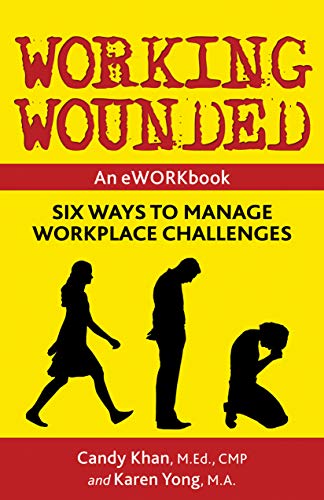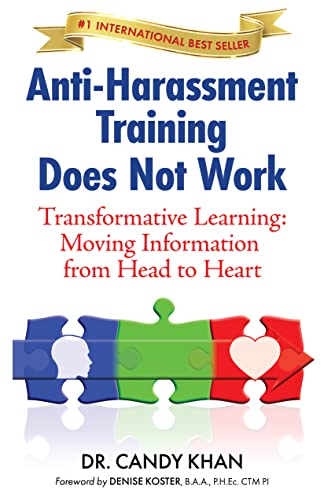BOOKS
- Home
- Books

Working Wounded eWorkbook: Six Ways to Manage Workplace Challenges
Candy Khan and Karen Yong capture the essence of emerging concern in the workplace. Working Wounded: Six Ways to Manage Workplace challenges series spotlights worker realities from recruitment, workplace bullying, domestic violence, discrimination, and making sense of the on-boarding process, credential recognition, ageism, sexism, and racism.
Through two fiction facilitators, six participants share their stories in a career development workshop. Each narrative is unique providing insights into the lived realities of workers. These powerful case studies, readers will have a deeper insight into detailed processes in organizations.
This is the eWorkbook to accompany the original book that offers reflective questions for organizational development and human resources practitioners to consider as they write policies, offer programs and services.
Leveraging over three decades, Candy Khan and Karen Yong offer detailed processes that organizations can adopt to create a respectful and inclusive workplace.
This e-Workbook is essential reading for anyone who has experienced workplace challenges, you are not alone, and to managers, human resources professionals and other advocates searching for solutions such as recruitment, workplace bullying, domestic violence, discrimination, and making sense of the on-boarding process.
GET BOOK ON AMAZON

Anti-Harassment Training Does Not Work: Transformative Learning: Moving Information from Head to Heart
No employer wants its employees to be bullied and harassed at the workplace. On the contrary, most employers offer an anti-harassment training to ensure employees understand company policy and legislation on workplace harassment. However, anti-harassment training typically focuses on definitions, rights of employers and employees, and complaint resolution processes. While this information is essential, anti-harassment training fails to allow for an interrogation of participant’s social location, positonality, and intersectionalty (who am I). Moreover, facilitators often teach anti-harassment via a “neutral lens,” failing to understand ways in which their identities shape their pedagogy (teaching).
Dr. Candy focuses on a whole person approach, where participants could bring their whole self to the workshop (mind, body, emotions, and spirit), which could potentially lead to a transformative shift, moving the information from the head to the heart. A must read for those in the anti-harassment training space.
GET BOOK ON AMAZON

